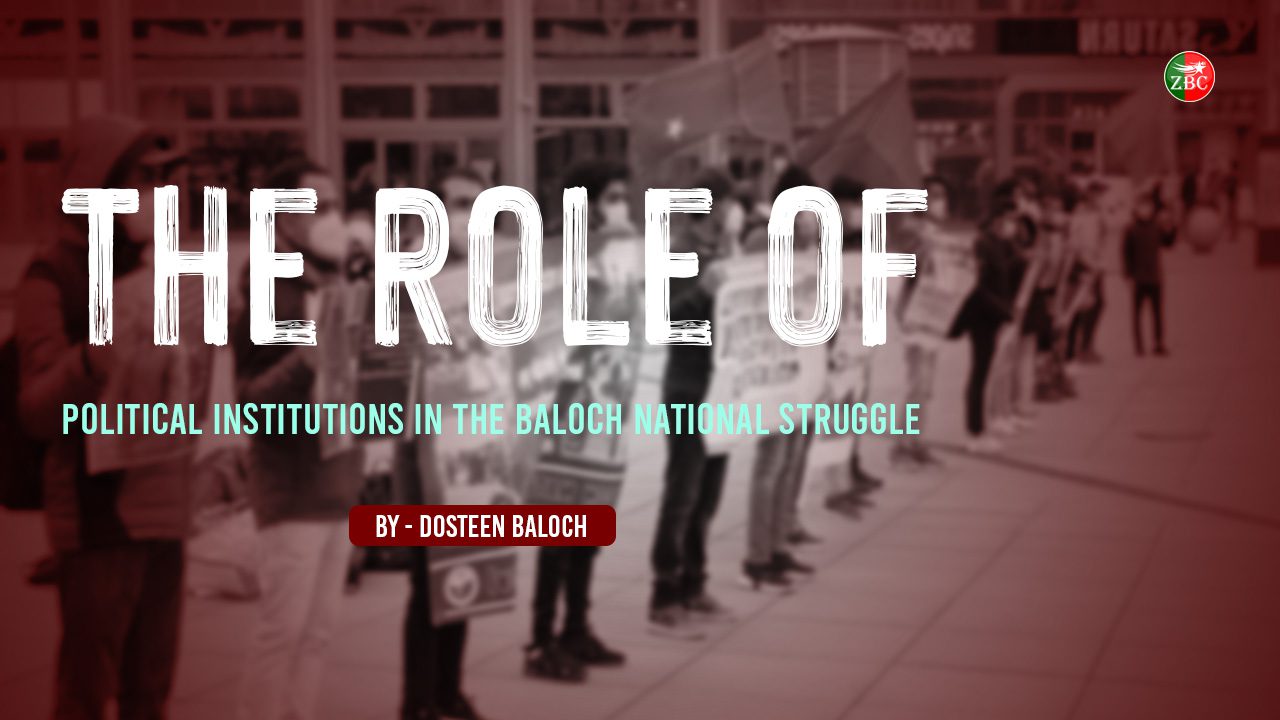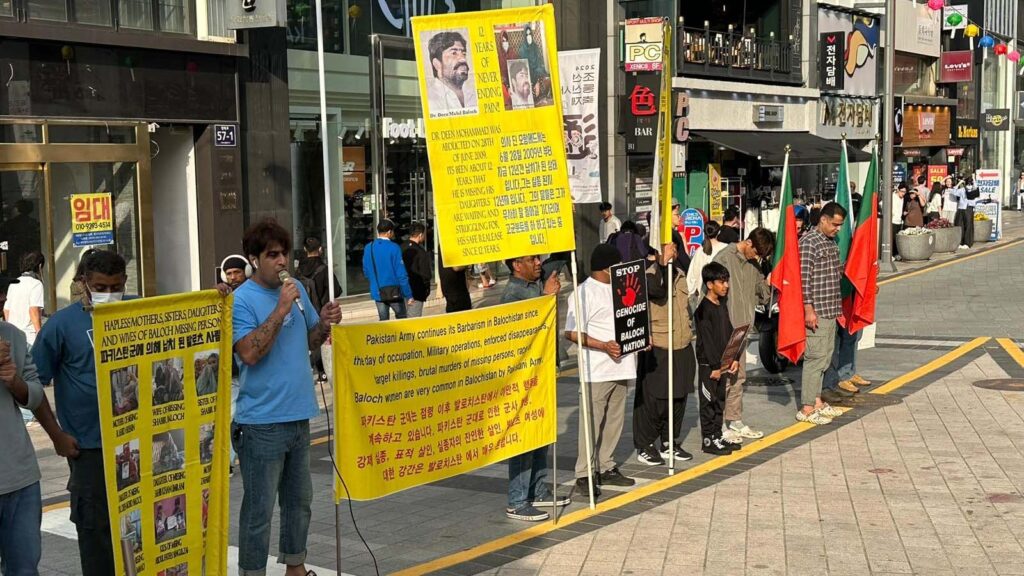The Baloch National struggle for freedom has been characterized by a complicated interplay between leadership as individuals and the function of political institutions. Individual characters have frequently emerged as notable leaders within the movement, but the overemphasis on individuals has hampered the struggle’s development and coherence. In order to effectively advance the cause of independence, Baloch political parties and activists must recognize the value of institutional structures and collective actions.
Historically, the national struggle for freedom of Balochistan has seen the rise of influential leaders who have captured the imagination of the masses. These individuals have frequently been hailed as heroes and the founders of many organizations, receiving considerable recognition and support. However, the cult of personality has come at a cost, as the emphasis on individuals has obscured the importance of strong political institutions.
Unfortunately, even today, the factories of making so-called founders and heroes are functional, which is being geared up by so-called senior politicians for miniature purposes, which is causing the Baloch movement a big loss in terms of intuitional disability and encouraging individuals. This is occurring because there is a lack of transparency, accountability, and ethical leadership within the Baloch movement.
The overemphasis on individual leaders has led to a lack of institutional continuity and capacity building within the Baloch movement. Instead of investing in the formation of powerful political parties, grassroots organizations, and advocacy groups, attention has been disproportionately focused on elevating certain individuals to positions of prominence. This has left the movement prone to fragmentation and internal disagreements, especially in the absence of distinct institutional mechanisms.
Furthermore, the adoration of individual leaders has frequently resulted in a culture of hero worship, in which personal allegiance takes precedence above group objectives. This poses a huge risk to the Baloch struggle’s integrity and unity, as individuals may prioritize their particular agendas and ambitions over the larger goals of freedom. Personality cults risk undermining the democratic values and participative ethos required for a long-term and inclusive movement.
To address these problems, Baloch political parties and activists must focus on developing robust and resilient political institutions. This includes investment in organizational structures, internal democracy, and participatory decision-making procedures that empower grassroots activists and promote collective leadership. Rather than relying primarily on charismatic people, the movement should develop a varied and inclusive leadership cadre that reflects the diversity of Baloch society.
Furthermore, there is an urgent need to debunk the concept of heroism and acknowledge the contributions of all persons in the Baloch struggle. Instead of elevating certain leaders to legendary status, we should focus on communal action and solidarity. Baloch political organizations and workers must stop idolizing individuals and instead recognize the collective efforts of all those who have contributed to the fight of liberation.
Individual leadership has played an important part in the Baloch Movement for freedom; yet an overemphasis on personalities has slowed the movement’s growth. Baloch political organizations and activists must prioritize the establishment of robust political institutions capable of providing the organizational cohesion, strategic vision, and democratic accountability required to effectively advance the cause of freedom. By moving the emphasis from individuals to institutions, the Baloch struggle can overcome internal divisions and pave the road for a more united and robust movement.



